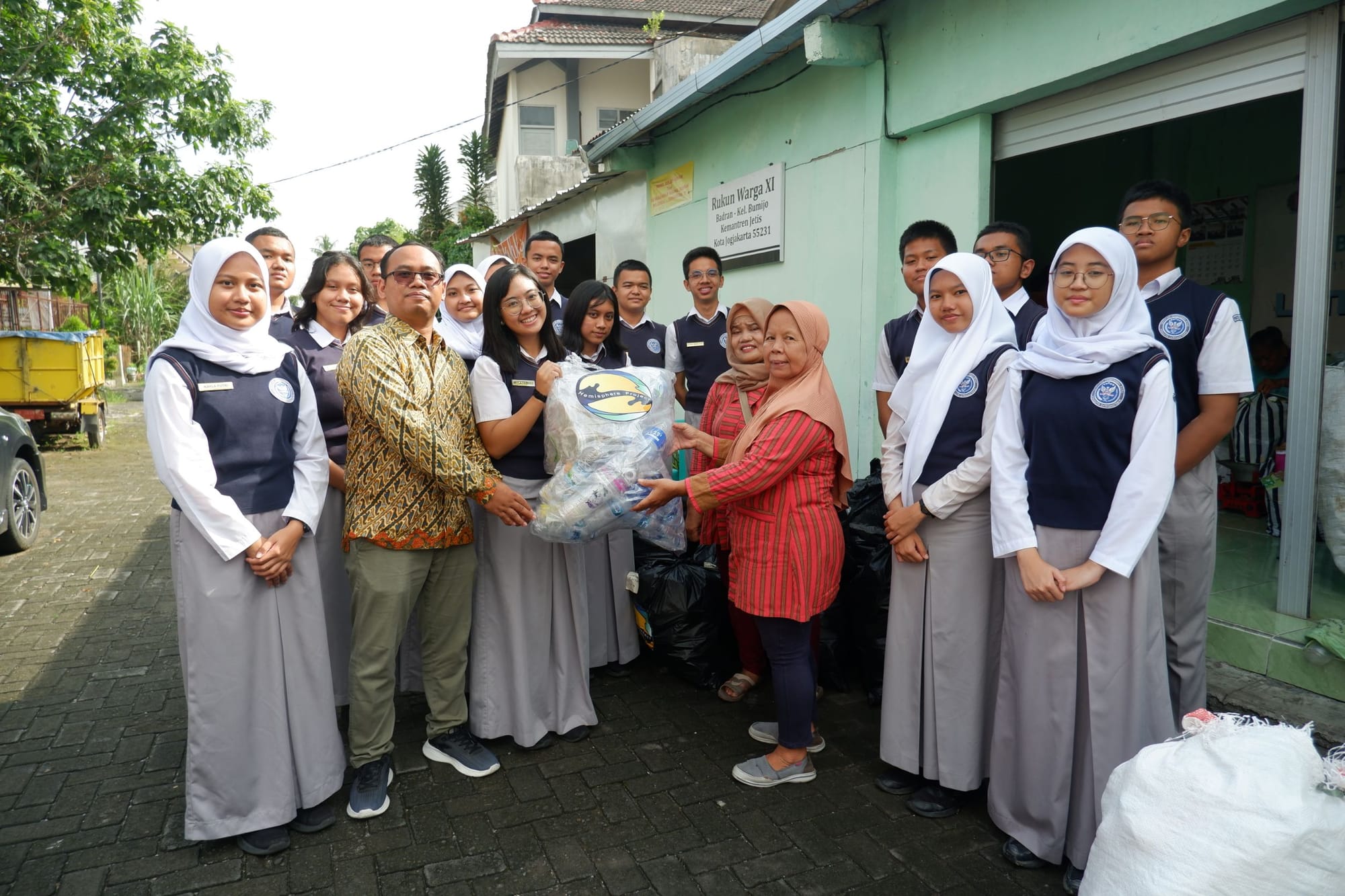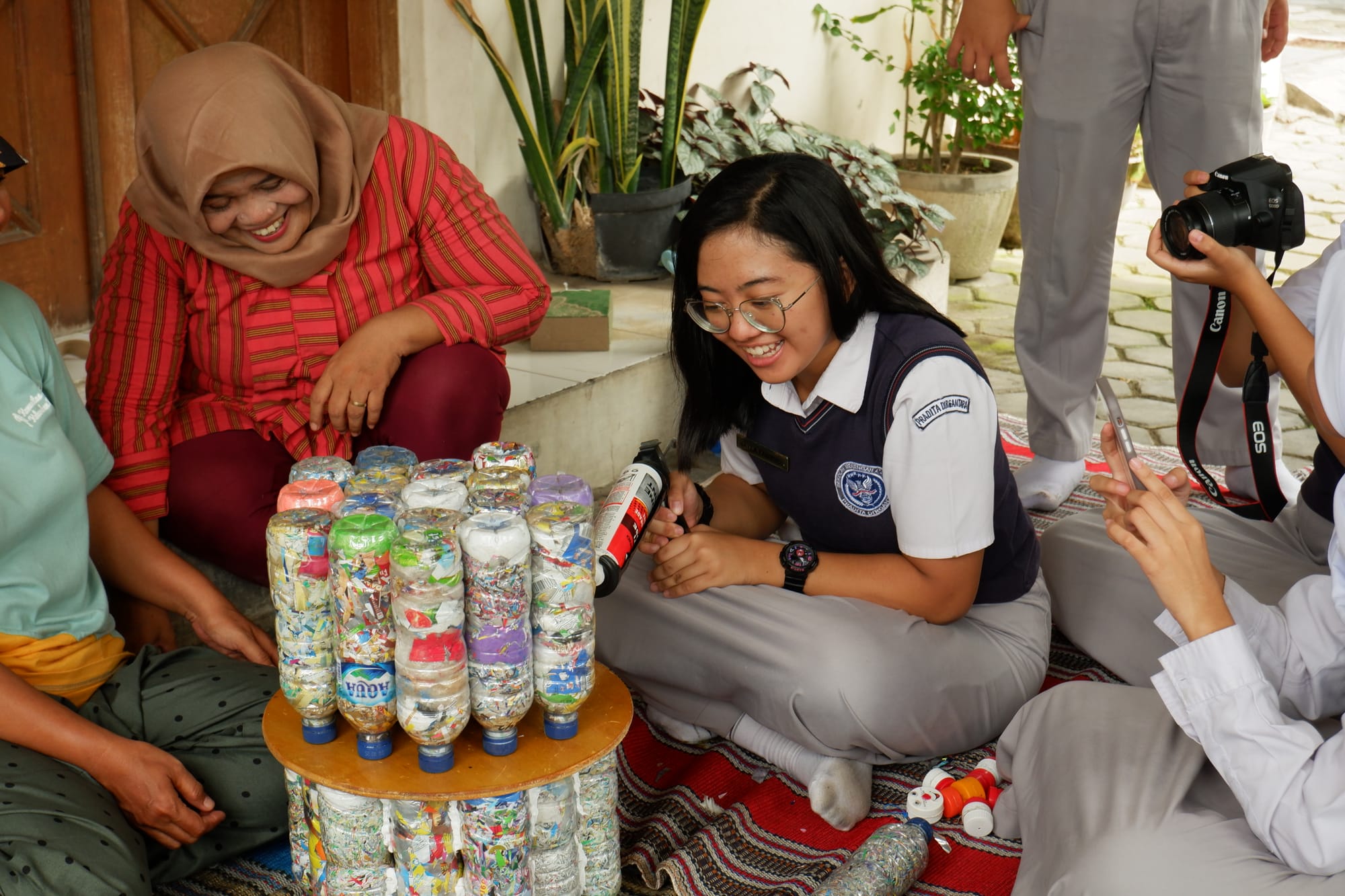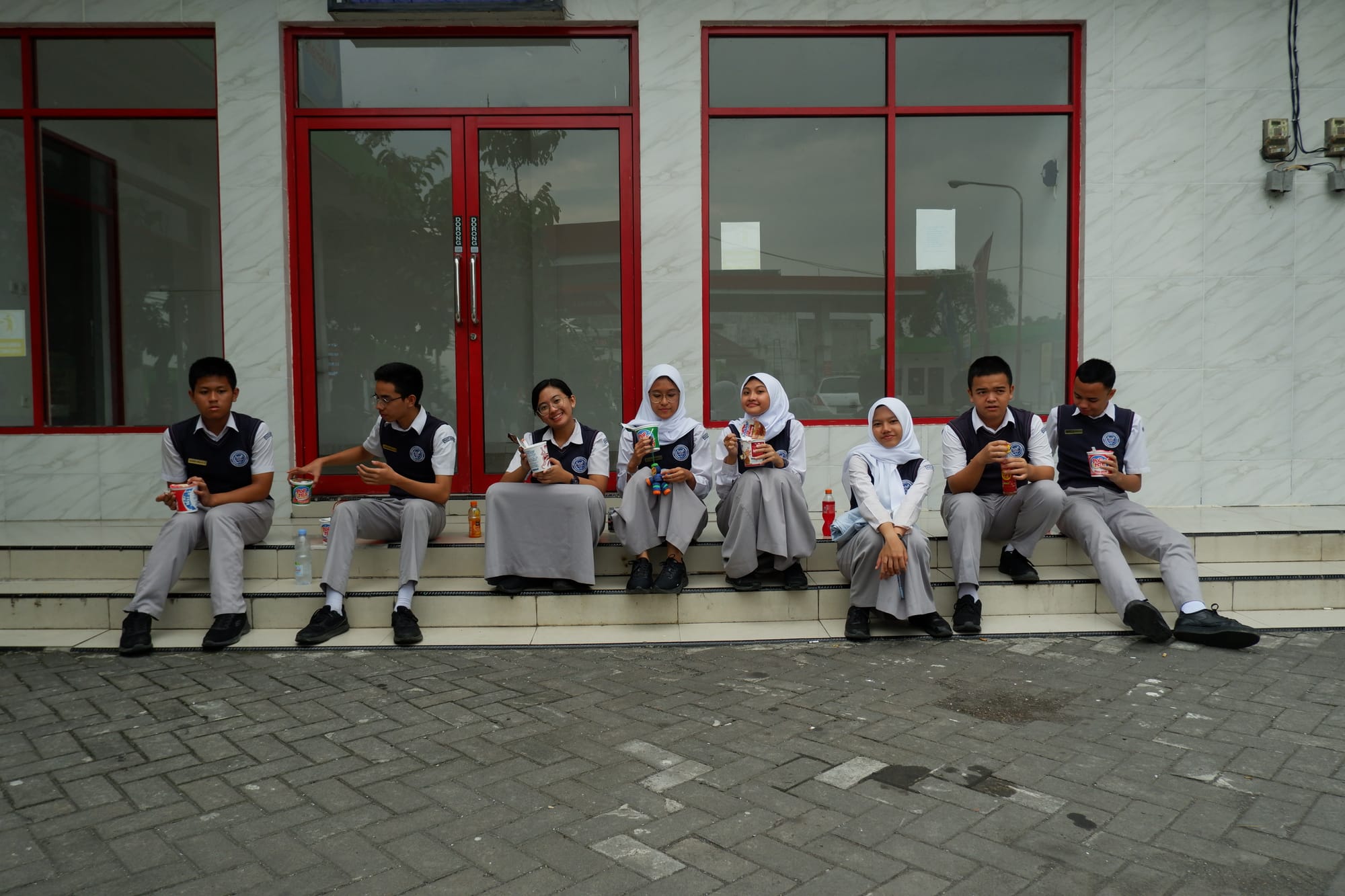Hemisphere Project Team Visitation to Bank Sampah Lintas Winongo and Paste Lab

“We cannot solve our problems with the same thinking we used when we created them.” – Albert Einstein, Physicist
The relationship between waste and recycling has evolved significantly over the decades, as shown in the Hemisphere Project Team visitation to one of the branches of Bank Sampah Lintas Winongo, and one of the pioneers of waste management innovation–Paste Lab. 21st century waste management has adopted various techniques such as constructing safe waste based furniture, more advanced sorting, etc, in response to the urgency of waste overproduction. Fortunately, the Hemisphere Project Team has been successful in observing and contributing to the cause in response to the disaster, through both Waste Bank and Paste Lab, as their objectives are aligned with Hemisphere’s objective of addressing the waste problem in the PLUME project. For the sake of learning, the team will serve this visitation as a stepping stone for youth to walk towards global change.

Balancing our studies, the project team decided to embark on the visitation on Saturday (03/02), simultaneously also as an effective way to pass leisure time. 14kg of ready-donated HDPE waste in hand, the team wasted no time to take off directly to the scene. Surprisingly, many people also have shown interest in the matter as the place was swarming with people walking left and right. A warm welcome was given to the team by the representative of the Bank Sampah by Bu Partini and Head of the Bank Sampah Lintas Winongo, Badran, RW 11, Bumijo, Jetis, Kota Yogyakarta, and whilst accompanied by Opik Prasetyo, S.Pd (as teacher supervisor), arriving at 08.00 the same time as weekly weighing. As she stated the institution’s vision of the matter, showing her concerns of current conditions. Soon after handing over the fruits of the PLUME Project–14 kg waste weighed from school, and enjoying the served local delicacies, the team’s agenda moved on into the real life practices of the Bank Sampah.
Bank Sampah Lintas Winongo is a local waste bank embraced on waste management operating in Bumijo Village, Jetis District, Yogyakarta City, with 3 main essential working fields. On this occasion, our team also learned how to make ecobrick, managing the whole system of Bank Sampah, and having a chit-chat with the local community. The Hemisphere Project Team with a total of 18 members was immersed in various facets of the operations: administrative sector, waste collection, as well as recycling management. Effective performance is shown on each of the sector’s responsibility itself: the administration is primarily concerned with gathering information about waste accumulation and those who give to the waste bank, administrative sector focuses on currency management, meanwhile recycling main focus is on creating sustainable eco bricks and eco-enzymes. The team had commented on how difficult it is to form a compact and useful product for the future, learning the great efforts that were put into the program by Bank Sampah Lintas Winongo. Transforming waste into resources that provides economical benefits for individuals, by marketing and promoting it.

The series of events continued on Paste Lab, Jl. Kaliurang No.13, Candi Karang, Sardonoharjo, Kec. Ngaglik, Kabupaten Sleman, Daerah Istimewa Yogyakarta, 55581, which imposes a large technological shift on waste recycling and local worker-centered jobs to foster Indonesian resources, both local craftsmanship and employment wise. Paste Lab itself has 3 different sites to conduct specific courses to manage the waste. The magnificent products are being presented in the lab such as table, stool, keychain, smartphone case, and many more! Or either being sold and displayed in an exhibition as an educational purpose towards the public. Upon entering the lab, various sophisticated modern waste management tools are visible at once. As usual, two visionary founders–(Yanuardi Satrio and Rifqi Dwantara), as well as owners of the lab greeted the team excitedly.
To our surprise, Paste Lab was only initiated from a private garage and continued to stay at the place until now. What’s amazing is how the procedurals are formally carried out without any major difficulties. Starting from collecting the waste, organizing waste based on color, grinding them to small pieces, cleansing process to maintain hygienic conditions, melting (fun fact, this procedure does not impose dangerous residue to the environment due to the specific type of plastic–HDPE, being used!), inserting to the machine to make 3D filaments, cooling, until polishing and ready to be marketed economically! These steps are magnificent for the scale of college students’ feat and the credibility that it upholds for the maintenance and dedication to operate the manufacturers, like hot press machines, injection molding, surface grinding machines, etc, that only kicked off as a small project at the start.
As another mark for its prominence, Paste Lab also managed to engage in mutual relationships with some of the most widely known skincare corporations in Indonesia: Sociolla, Erha, Esqa, and many more. Clients also vary from the size of gadgets companies, to hotels that provide high customer service. In addition, sudden large requests from customers are also prone to happen at any time and must be fulfilled at any cost! This makes Paste Lab’s product to be more unique as well as flexible than others.
The journey has highlighted the unintended consequences that piling waste may have to the unification and development of the Indonesian people, from an idea to outstanding collaborations as well as results. Establishing both Bank Sampah Lintas Winongo and Paste Lab requires real-time and flexible adjustment in accordance with public health requirements while weighing the risks associated with waste, moreover, offering working opportunities to the locals. It is amazing to think what people will accomplish without caring about the credits. As the team departed, inspired by the spirit of innovation and collaboration, we envisioned a future where waste is not a burden but a valuable resource, driving sustainable development and prosperity for all.

The Hemisphere Project Team

